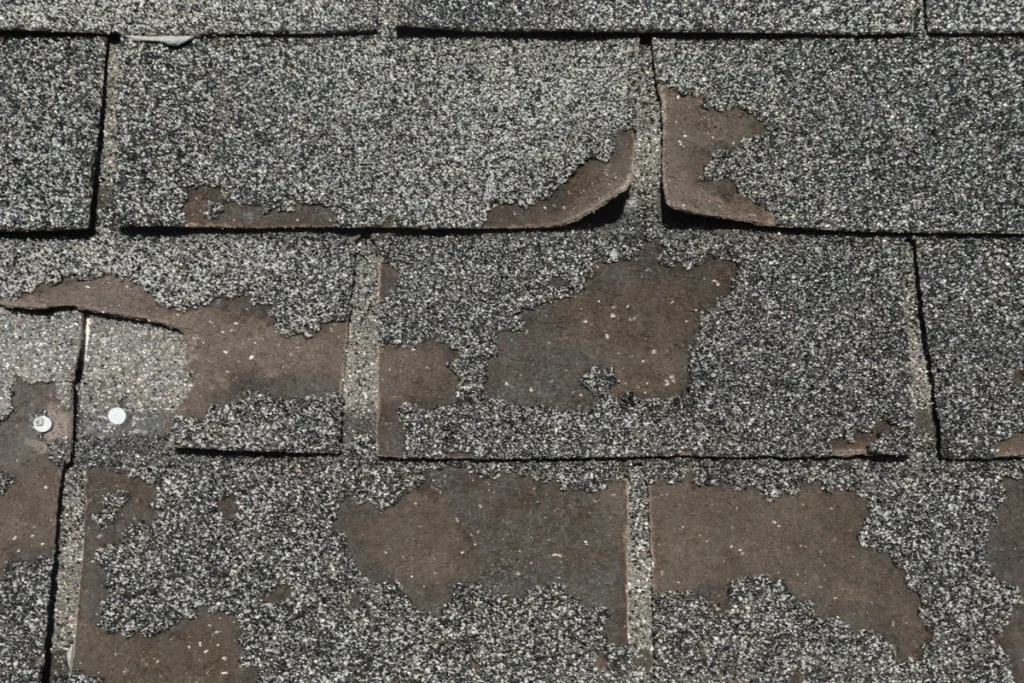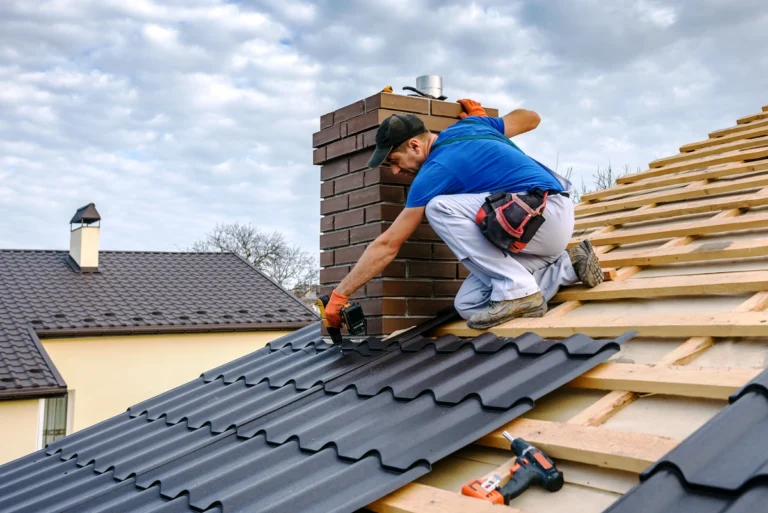As a homeowner, you know that your roof is one of the most important components of your house. It shields you from the elements and helps maintain the structural integrity of your home.
Roof warranties can offer great peace of mind when homeowners are in need to get valuable roof repair or replacement.
But what exactly do these warranties cover, and what should you expect from them? In this homeowner’s guide, we’ll explore the ins and outs of roof warranties to help you understand what is included and what is not. Let’s dive in and demystify the world of roof warranties!
Inside this blog:
- A basic rundown of roof warranties
- 6 typical situations covered by roof warranties
- 6 common items not usually covered by roof warranties
Keep reading to learn more about roof warranties and which type is the best option for you!
Understanding Roof Warranties 📜

Before delving into the specifics of what roof warranties cover, it’s essential to understand the different types of warranties available:
Manufacturer’s Warranty
This warranty is provided by the manufacturer of the roofing materials. It covers defects in the materials themselves and typically lasts for a specified number of years. It serves as a safeguard against unexpected issues with the roofing materials themselves, offering homeowners peace of mind.
Workmanship Warranty
Offered by the roofing contractor, this warranty covers the quality of the installation and workmanship. It ensures that the roof was installed correctly and that any installation-related issues are addressed. With a workmanship warranty, you can trust that the roofing contractor stands behind their craftsmanship.
At Clean Cut Roofing, we offer 10, 15, and 20-year workmanship warranties for a variety of top-tier roofing products. This includes GAF Royal Sovereign Shingles, Landmark Shingles, CertainTeed Presidential Shakes, and Carriage House Luxury Shingles.
Extended or Limited Warranty
Some manufacturers offer extended or limited warranties that provide additional coverage for a longer duration. These warranties often come with specific conditions and may require registration. An extended warranty can offer prolonged protection and may be worth considering for long-term peace of mind.
Now, let’s break down what these warranties typically cover:
What’s Typically Covered by Roof Warranties ✅
Below are 6 situations that are usually covered by roof warranties.
1. Defective Materials

Manufacturer’s warranties typically cover defects in the roofing materials themselves. This includes issues like shingle delamination, premature deterioration, or manufacturing defects.
2. Workmanship Errors
A workmanship warranty ensures that the roofing contractor has installed the roof correctly. It covers errors made during installation, such as improper flashing, incorrect nailing, or inadequate ventilation.
3. Roof Lifespan
Many roofing warranties specify the expected lifespan of the materials. If your roof fails before reaching this lifespan due to covered issues, the warranty may provide remedies.
4. Prorated Coverage
Some warranties offer prorated coverage, which means that the coverage decreases over time. For example, a warranty might provide full coverage for the first ten years and then gradually decrease to a lower percentage of coverage in subsequent years.
5. Transferable Warranties
In some cases, warranties are transferable to a new homeowner if you sell your house. This can be an attractive selling point.
6. Additional Features
Certain roofing materials, such as architectural shingles, may come with additional features like wind resistance or algae resistance warranties.
What’s Typically NOT Covered by Roof Warranties ❌
While roof warranties provide valuable coverage, they often come with limitations and exclusions. Here are 6 common items that aren’t usually covered:
1. Acts of Nature
Most warranties do not cover damage caused by extreme weather events like hurricanes, tornadoes, or hailstorms. This is typically handled by your homeowner’s insurance.
2. Improper Maintenance
Neglecting regular roof maintenance can void your warranty. It’s essential to perform necessary maintenance tasks such as cleaning gutters and removing debris.
3. Unapproved Alterations
If you make modifications or alterations to your roof that are not approved by the manufacturer or contractor, your warranty may be voided.
4. Non-Certified Repairs
If you hire a non-certified contractor to perform repairs or maintenance on your roof, it may void the warranty.
5. Normal Wear and Tear
Warranties generally do not cover normal wear and tear that occurs over time, such as minor granule loss on shingles.
6. Damage from Rooftop Installations
Damage caused by the installation of rooftop equipment, like solar panels or satellite dishes, may not be covered.
Now that you have a better understanding of what roof warranties typically cover and what they don’t, here are some additional tips to make the most of your warranty:
Tips for Maximizing Your Roof Warranty 🌟
Let’s go over a few helpful tips for how to get the most out of your roof warranty.
- Read and Understand the Warranty: Before purchasing roofing materials or hiring a contractor, thoroughly read and understand the warranty terms and conditions. Be aware of any limitations or exclusions.
- Choose Quality Materials: Select roofing materials from reputable manufacturers known for their quality and reliability. Quality materials are less likely to have defects and more likely to last.
- Use Certified Contractors: Ensure that the roofing contractor you hire is certified to install the specific roofing materials you’ve chosen. Improper installation can void warranties.
- Register Your Warranty: Some warranties require registration within a specific timeframe. Be sure to complete the registration process to activate your warranty.
- Document Everything: Keep records of all maintenance, inspections, and repairs related to your roof. This documentation can be valuable if you need to make a warranty claim.
- Perform Regular Maintenance: Follow a routine maintenance schedule to keep your roof in good condition. This includes cleaning gutters, inspecting for damage, and addressing issues promptly.
- Address Issues Promptly: If you notice any problems with your roof, such as leaks or missing shingles, address them promptly. Delaying repairs can lead to more extensive damage that may not be covered.
Protect Your Home With a Solid Roof Warranty
Roof warranties are a valuable aspect of your home’s protection, providing coverage for defects and workmanship errors. Understanding what your roof warranty covers and what it doesn’t is essential for making informed decisions about your roofing materials and contractor. By following the tips mentioned above and performing regular maintenance, you can maximize the benefits of your roof warranty and ensure the long-lasting durability of your roof.
Get in touch with our expert team of roofers at Clean Cut Roofing to get top-of-the-line craftsmanship and competitive warranties. We’re excited to hear about your next roofing project and help your vision come to life!



